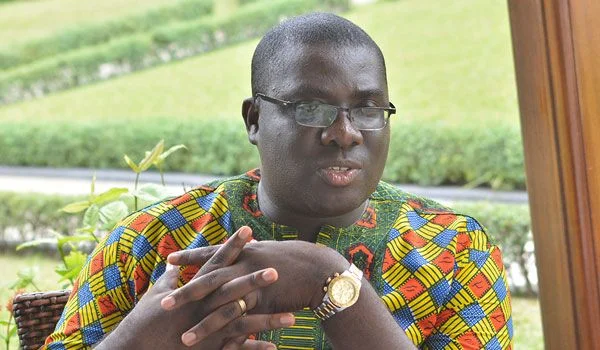Samuel Awuku’s critique of The Fourth Estate’s report on the National Lottery Authority (NLA) Good Causes Foundation centers on allegations of journalistic malpractice, specifically concerning accuracy, balance, and respect for privacy. Awuku contends that the report, which focuses on the Foundation’s spending on high-profile events and sponsorships, misrepresents the organization’s work by omitting its significant contributions to life-saving projects and charitable donations. He argues that this selective reporting creates a misleading and unbalanced narrative that unfairly tarnishes the Foundation’s image. This omission, according to Awuku, is a significant breach of journalistic ethics, as it presents a skewed perspective of the Foundation’s activities.
The crux of The Fourth Estate’s report revolves around the allocation of substantial funds by the NLA Good Causes Foundation to what are described as “glamorous events” and sponsorships of elite organizations. The report lists several instances of such funding, including contributions to award ceremonies like the EMY Africa Awards, Ghana CEO Awards, Africa Prosperity Network Awards, Ghana Club 100 Awards, Ashanti Business Leaders Excellence Awards, and the Ghana Women of the Year award. These expenditures, the report suggests, deviate from the Foundation’s intended purpose and raise questions about the appropriateness of using public funds for such purposes. The amounts involved, ranging from GHC50,000 to GHC350,000, are highlighted to emphasize the scale of these sponsorships.
Awuku’s response asserts that the report’s focus on these sponsorships overshadows the Foundation’s core work, which includes crucial life-saving initiatives and donations that have demonstrably benefited vulnerable communities. He emphasizes that he proactively engaged with The Fourth Estate journalists, granting an interview on August 18, 2025, during which he presented detailed information about these activities. His disappointment stems from the perceived disregard for this information, leading him to believe the report intentionally omitted these positive aspects to paint a negative picture of the Foundation. This deliberate omission, he argues, is a clear indication of a lack of balance and objectivity in the reporting.
Further intensifying Awuku’s criticism is the report’s publication of the names of NLA staff and beneficiaries with medical conditions. He condemns this act as a flagrant violation of privacy, particularly since it was done without their consent or prior warning. This breach, he argues, demonstrates a disregard for the ethical responsibilities of journalism, which should prioritize the protection of individuals’ privacy, especially those in vulnerable situations. The act of publishing names without consent adds another layer to Awuku’s accusations of unethical journalistic practices by The Fourth Estate.
Awuku’s core argument hinges on the principle of balanced reporting. He contends that while scrutiny of public spending is justified, it should not come at the expense of a fair and comprehensive representation of the organization’s activities. By focusing solely on the sponsorships and omitting the life-saving projects and donations, The Fourth Estate, according to Awuku, has created a distorted narrative that unfairly damages the Foundation’s reputation and undermines public trust in its work. He calls on the journalists to uphold the ethical standards of their profession by presenting a more balanced and accurate account of the Foundation’s activities.
In essence, Awuku’s response to The Fourth Estate’s report is a strong condemnation of what he perceives as a biased and unethical journalistic approach. He accuses the journalists of prioritizing sensationalism over accuracy and balance, thereby misrepresenting the NLA Good Causes Foundation’s work and violating the privacy of individuals associated with the organization. He calls for a more responsible and ethical approach to journalism, emphasizing the importance of accurate, balanced, and respectful reporting that prioritizes the public interest and protects the privacy of individuals. His statement serves as a plea for responsible journalism that prioritizes fairness and accuracy over sensationalism and potentially damaging narratives.














